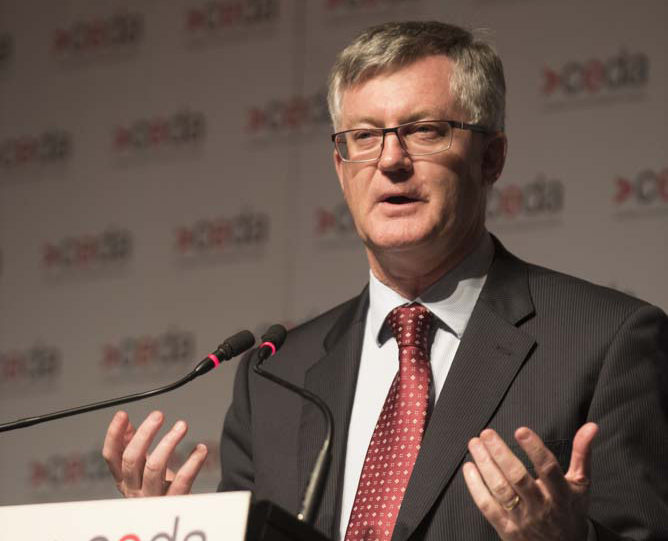Explore our Climate and Energy Hub
09/10/2016

Speaking on the The Innovation imperative: what it means for industry, services and the economy, Dr Parkinson said future growth in our national living standards rests on innovation – innovation in products and processes, in business models, and in public policy and service delivery.
“We tend to think of innovation as being done by start-ups or people in white coats, but it’s much more than that. By and large, our greatest gains have come from building a culture that adapts and diffuses the ideas of others,” he said.
“Economists tend to favour ‘multifactor productivity’ as the standard and probably broadest measure of efficiency and innovation in the market economy.”
However, Dr Parkinson said between the 1990s and 2000s, average annual growth in multifactor productivity fell by around a percentage point across several advanced economies, and was barely positive in Australia over the past decade.
While Dr Parkinson said there were a range of views as to why this was occurring, “what we can be confident about is that hastening the pace at which we innovate is critical to our relative competitiveness, and ultimately our living standards”.
Dr Parkinson said there were a number of areas where government could assist innovation, including through tax and regulatory settings.
“We often penalise risk taking through tax and regulatory settings,” he said.
“Innovation is not certain to be successful. It often involves failure, sometimes a lot of it – innovation is, after all, inherently risky. Yet often we impose too many costs on the efforts of those who fail from taking a legitimate risk.
“We do this when bankruptcy penalises those able to start again or when the tax system fails to give due recognition for tax losses.
“Some people will lose, either because their innovation fails or they are displaced by a successful competitor. We need to make sure they see pathways back, including through retraining and skills development.”
However, he said while government has a role to create the conditions, ultimately, businesses drive commercial innovation.
“It is important that our businesses have the vision and management acumen to identify and successfully pursue long-term gains through cutting edge product and process innovation,” he said.
“A prominent international study of management practices in manufacturing found that management practices in Australia are mid range.
“We are well below top performers like the United States, Germany, Sweden, Japan and Canada, but more similar to France, Italy and the United Kingdom.
“Regression analysis suggests that lifting management practices in Australian manufacturing firms to the average level in the US would raise the level of productivity in Australian manufacturing by around eight per cent.”
In conclusion, Dr Parkinson said: “Perhaps at times in our history demand for our resources has made many of us rich for reasons other than our ability to innovate.
“But those times are now well and truly behind us.
“Australia’s future will be determined by the resourcefulness of its people, not the resources lying under it.”
Watch State of the Nation 2016 videos.
